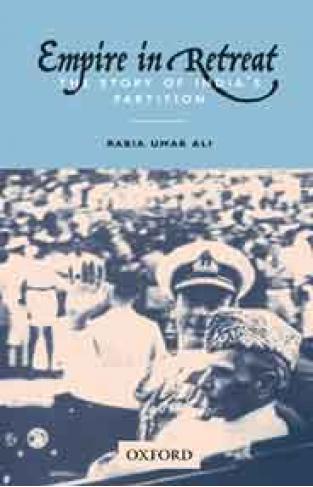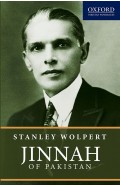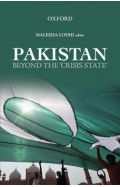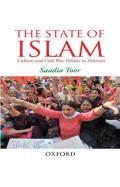Empire in Retreat: The Story of India's Partition
By: Rabia Umar Ali
-
Rs 652.50
- Rs 725.00
- 10%
You save Rs 72.50.
Due to constant currency fluctuation, prices are subject to change with or without notice.
magnitude of which contemporary history has no parallels. The violence, mass migrations, rape, arson and killings that accompanied partition, all spoke of the stupendous price that was paid by millions to drive the British out and attain the choice of self rule.
The hasty British departure pre-empted the partition of India that made a farce of planning for one of the most significant developments of the twentieth century. It was by no means given the priority and attention that an event of such enormity deserved. Moreover, the imperial inclination towards
the Indian National Congress in all matters of planning, consultation, decision making and implementation do not speak of a fair and neutral arbitration of Indian destiny. The "swing speed" with which the plan was put together, the unbridled haste with which the day of freedom was announced, the
unpardonable rush in which a land of millions was dissected, the hurried retreat that betrayed a dying Raj and the un-judicious distribution of the goods, resources and assets of the subcontinent all quantified to a huge disaster.
The result of such a planning was carnage and disruption and a complete breakdown of law and order. The gloom and sorrow that saw the dawn of independence could not destroy the will and hope of the nations freed from long bondage, yet it helped little in embarking upon an auspicious new journey of
sovereign existence. The inherently flawed plan, both in making and content, that was so proudly carved out by the "best surgeons of India" unfortunately carried in it seeds of a protracted conflict and violent friction. The legacy of mutual hate and distrust thus initiated between the two states
became an agent for carrying the burden of a forced baggage that has made the peace and prosperity of the region a lost dream. And the blame rests mainly on the departing authorities for which there is possibly no redemption.
| Book | |
| What's in the Box? | 1 x Empire in Retreat The Story of India |
magnitude of which contemporary history has no parallels. The violence, mass migrations, rape, arson and killings that accompanied partition, all spoke of the stupendous price that was paid by millions to drive the British out and attain the choice of self rule.
The hasty British departure pre-empted the partition of India that made a farce of planning for one of the most significant developments of the twentieth century. It was by no means given the priority and attention that an event of such enormity deserved. Moreover, the imperial inclination towards
the Indian National Congress in all matters of planning, consultation, decision making and implementation do not speak of a fair and neutral arbitration of Indian destiny. The "swing speed" with which the plan was put together, the unbridled haste with which the day of freedom was announced, the
unpardonable rush in which a land of millions was dissected, the hurried retreat that betrayed a dying Raj and the un-judicious distribution of the goods, resources and assets of the subcontinent all quantified to a huge disaster.
The result of such a planning was carnage and disruption and a complete breakdown of law and order. The gloom and sorrow that saw the dawn of independence could not destroy the will and hope of the nations freed from long bondage, yet it helped little in embarking upon an auspicious new journey of
sovereign existence. The inherently flawed plan, both in making and content, that was so proudly carved out by the "best surgeons of India" unfortunately carried in it seeds of a protracted conflict and violent friction. The legacy of mutual hate and distrust thus initiated between the two states
became an agent for carrying the burden of a forced baggage that has made the peace and prosperity of the region a lost dream. And the blame rests mainly on the departing authorities for which there is possibly no redemption.
Empire in Retreat: The Story of India's Partition
By: Rabia Umar Ali
Rs 652.50 Rs 725.00 Ex Tax :Rs 652.50
Zubin Mehta: A Musical Journey (An Authorized Biography)
By: VOID - Bakhtiar K. Dadabhoy
Rs 840.00 Rs 1,050.00 Ex Tax :Rs 840.00
In Search of Shiva: A Study of Folk Religious Practices in Pakistan
By: Haroon Khalid
Rs 795.00 Ex Tax :Rs 795.00
The Origins of Political Order From Prehuman Times to the French RevolutioN
By: Francis Fukuyama
Rs 4,495.00 Ex Tax :Rs 4,495.00
In Search of Shiva: A Study of Folk Religious Practices in Pakistan
By: Haroon Khalid
Rs 795.00 Ex Tax :Rs 795.00
No recently viewed books available at the moment.
Zubin Mehta: A Musical Journey (An Authorized Biography)
By: VOID - Bakhtiar K. Dadabhoy
Rs 840.00 Rs 1,050.00 Ex Tax :Rs 840.00
Empire in Retreat: The Story of India's Partition
By: Rabia Umar Ali
Rs 652.50 Rs 725.00 Ex Tax :Rs 652.50
In Search of Shiva: A Study of Folk Religious Practices in Pakistan
By: Haroon Khalid
Rs 795.00 Ex Tax :Rs 795.00














-120x187.jpg?q6)






-120x187.jpg?q6)








-120x187.jpg?q6)


-120x187.jpg?q6)